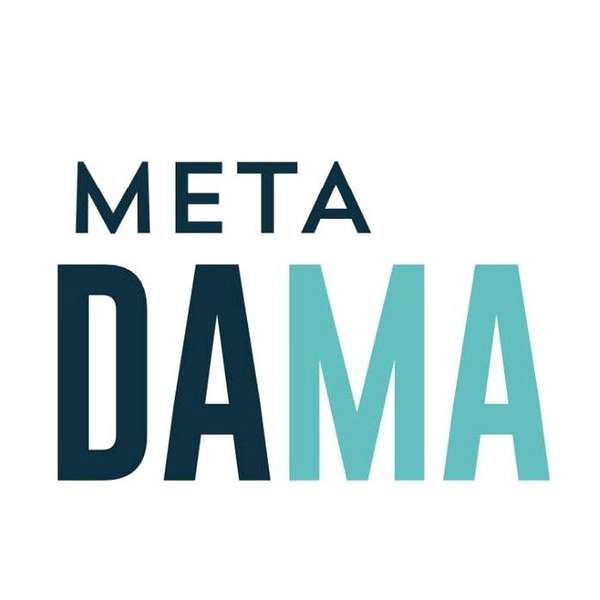
MetaDAMA - Data Management in the Nordics
This is DAMA Norway's podcast to create an arena for sharing experiences within Data Management, showcase competence and level of knowledge in this field in the Nordics, get in touch with professionals, spread the word about Data Management and not least promote the profession Data Management.
-----------------------------------
Dette er DAMA Norge sin podcast for å skape en arena for deling av erfaringer med Data Management, vise frem kompetanse og kunnskapsnivå innen fagfeltet i Norden, komme i kontakt med fagpersoner, spre ordet om Data Management og ikke minst fremme profesjonen Data Management.
MetaDAMA - Data Management in the Nordics
2#1 - Marilu Lopez, Peter Aiken & Achillefs Tsitsonis - Data Literacy & DAMA International (Eng)
Welcome to Season 2 of MetaDAMA!
The first episode is dedicated to DAMA. I talked to Marilu Lopez, Leader of the Presidents Council for DAMA, Peter Aiken, President of DAMA International, and Achillefs Tsitsonis, President of DAMA Norway.
We had a great conversation about the vision and mission of the voluntary, vendor-independent organization DAMA and its value for the knowledge worker community, as well as society as a whole.
We also talked about what Data Literacy is, how we can operationalize the term, and to what means. The best definition of Data Literacy so far is “the ability to read, write and communicate data in context, with an understanding of the data sources and constructs, analytical methods and techniques applied, and the ability to describe the use case application and resulting business value or outcome.”
Here are my key takeaways:
The Data Quest
- Data needs to become a profession.
- People come to data through different means, with brings new and different perspectives. It is not easy to view data as an uniform term.
- Data is as much a part of the business world as it is of the IT world. DAMA wants to bring business and IT world together to collaborate and understand each other better.
- The metaverse is collecting all data about us, and we give it willingly. Is there a lack of understanding of consequences in society as a whole?
The aspect of Change
- A lot of Data Management is about Change Management and reliant on the existing culture. At the same time, culture is something unique and needs to be fostered locally.
- We need to prepare data professionals to become change agents.
- The principles of Data Management are about collaboration, and DAMA is trying to live by this principle.
Data literacy in society
- What can we tell people that they objectively need to have in terms of skills and knowledge in order to become data literate?
- What conversations do you need to have in your family to ensure that you are data literate enough to operate a smartphone without exposing your data?
Knowledge workers
- Anyone that works with her/his brain, uses data and thereby is a knowledge worker.
- The sooner we make our knowledge workers more literate the sooner we will end up with smarter and more effective organizations.
- Knowledge workers need a learning path.
- Professionals need to have an ethical compass, an urge or even duty to call out if one sees unethical behavior.
- We all have a responsibility to share our knowledge.
